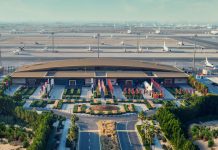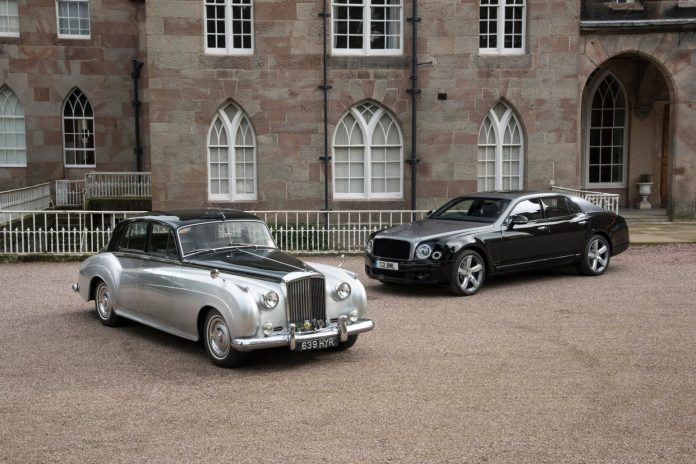The mighty Bentley 6¾-litre V8 engine – the longest serving V8 design in continuous production – has finally reached the end of its handcrafted manufacturing run. The final engine was assembled in Crewe earlier this month by the dedicated team of seven people, who between them have a combined experience of 105 years building Bentley’s iconic V8 engine.
In production for more than 60 years, and with the same configuration and bore spacing as the very first version from 1959, the last L-Series engine will spend its life powering the 30th and last specially commissioned Mulsanne 6.75 Edition by Mulliner. This bespoke series closes the Mulsanne’s production run, and celebrates the life of its iconic engine with a myriad of V8-inspired details including badging, blueprint graphics and even ventilation “organ stops” featuring a miniature version of the oil cap.
Firas Kandalaft, Head of Marketing and Communications at Bentley Middle East, Africa and India, commented: “Countless Bentley owners across the region have enjoyed the privilege of travelling in some of the most luxurious cars ever built, powered by this historic 6¾-litre V8 engine. The appeal of such cars as these, as well as even more exclusive Middle East special edition and limited models such as the Mulsanne Shaheen and Mulsanne Sinjari respectively, was derived greatly from the performance delivered by this extraordinary powerplant. But now we can look forward to the future of Bentley, powered initially by our exceptional W12 and sporting 4.0-litre V8.”
Originally designed by a team of Bentley engineers in the 1950s to deliver a step change in performance over the straight six it replaced, the L-Series V8 first saw service in the 1959 Bentley S2 – developing around 180 bhp, deemed “adequate” by Bentley at the time. Since then, through the advent of continual design improvement, turbocharging (first single, then twin), electronic control systems, fuel injection and variable valve timing the modern descendant of that original engine has evolved into something truly remarkable. Developing 530 bhp for the Mulsanne Speed, together with an astonishing 1,100 Nm of torque, the low-revving engine delivers a unique character that defined the widely-recognised “wave of torque” that all Bentleys now ride. At the same time, emissions have been drastically reduced, with the modern engine producing 99% fewer harmful emissions than its forebear.
Every one of the 36,000 L-Series engines built over the last 60 years has been created by hand in the engine workshops of Bentley’s Crewe headquarters. Even the modern engine takes 15 hours to build, and the key internal components are individually chosen to form a matching, balanced set so that the engine runs perfectly smoothly – a skill that takes years to perfect. Once completed, and after thorough testing, the engine is signed off by one of Bentley’s engine specialists, as it has been for decades – with a plate denoting their signature affixed to the front of the engine.
With the Mulsanne completing production once the thirty 6.75 Edition cars are built, the all-new Flying Spur will become Bentley’s flagship model, as the pinnacle of Bentley’s exquisite range of luxurious cars. With the Flying Spur to receive a hybrid powertrain by 2023, the move symbolises Bentley’s commitment to change and its journey to define the future of sustainable luxury mobility. The world’s most sought-after luxury car brand has already taken its first step on the road towards electrification with the launch of the Bentayga Hybrid – the luxury SUV sector’s first, true plug-in hybrid and the most efficient Bentley ever.




























